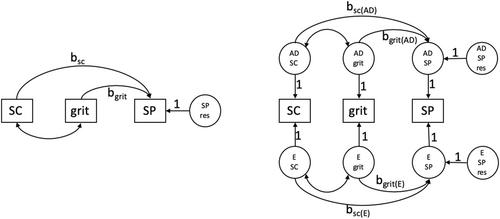Self-control and grit are associated with school performance mainly because of shared genetic effects
Abstract
Background
By combining the classical twin design with regression analysis, we investigated the role of two non-cognitive factors, self-control and grit, in the prediction of school performance. We did so at the phenotypic, genetic, and environmental level.
Methods
Teachers filled out a survey on the twins' school performance (school grades for reading, literacy, and math), self-control (ASEBA self-control scale), and grit (the perseverance aspect) for 4891 Dutch 12-years-old twin pairs (3837 pairs with data for both and 1054 pairs with data for one of the twins). We employed regression analyses to first assess the contributions of self-control and grit to school performance at the phenotypic level, and next at the genetic and environmental level, while correcting for rater (teacher) effects, parental SES, and sex.
Results
Higher SES was associated with better school performance, self-control, and grit. On average, girls had more self-control and grit than boys. Corrected for sex, SES, and teacher rater effects, genetic factors accounted for 74%, 69%, and 58% of the phenotypic variance of school performance, self-control, and grit, respectively. Phenotypically, self-control and grit explained 28.3% of the variance in school performance. We found that this phenotypic result largely reflected genetic influences.
Conclusions
Children who have better self-control and are grittier tend to do better in school. Individual differences in these three traits are not correlated because of shared environmental influences, but mainly because of shared genetic factors.


 求助内容:
求助内容: 应助结果提醒方式:
应助结果提醒方式:


